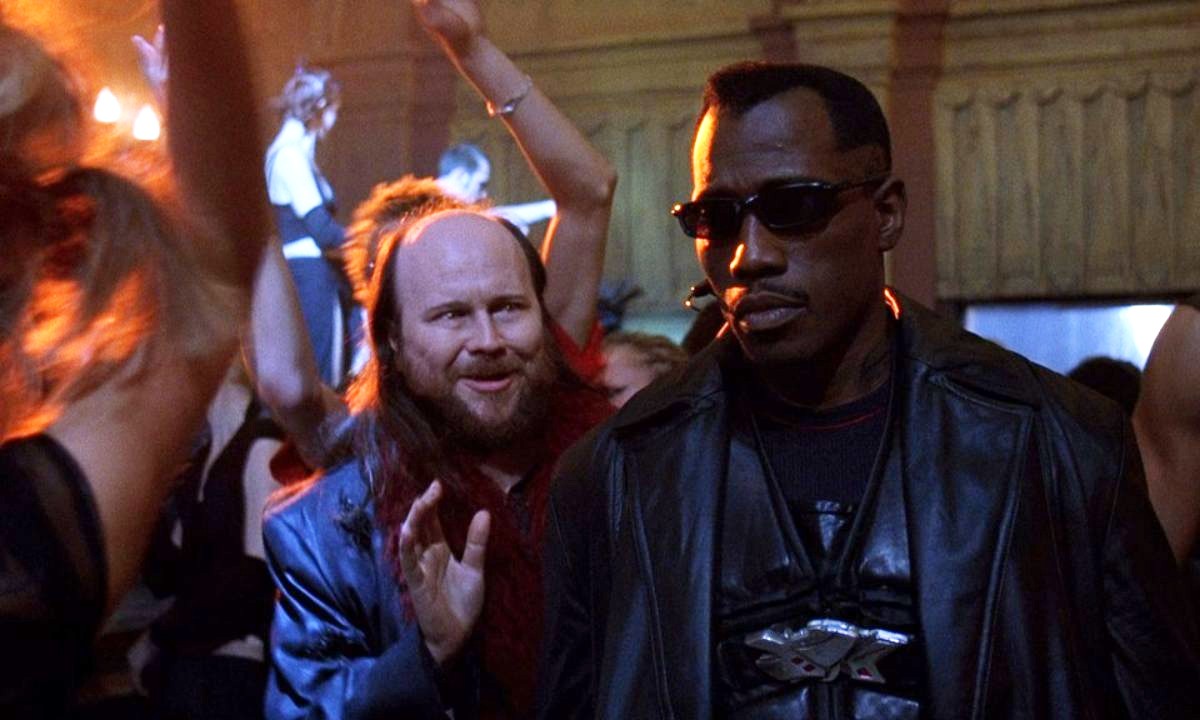Blade may not be the first name that comes to mind when you think about superheroes, but that doesn’t mean the character isn’t influential in the comic book landscape.
In fact, Blade can arguably be credited with the birth of Fox’s X-Men franchise, Sam Raimi’s Spider-Man movies, and the Marvel Cinematic Universe as a whole, a feat that was recently acknowledged and celebrated in Deadpool & Wolverine.
Yes, Blade is a Marvel character through and through, created by writer Marv Wolfman and artist Gene Colan. Originally introduced as a supporting character in Tomb of Dracula #10 (1973), this half-human, half-vampire anti-hero, otherwise known as Eric Brooks, soon became a popular, iconic, and lasting Marvel Comics character. Blade is unique among vampires; he possesses almost all of their strengths and none of their weaknesses, including being able to walk the Earth in daylight. As such, Blade is also often known as Daywalker, a martial arts master who uses his abilities to cleanse the world of the nightmarish monsters and occultists intent on destroying innocent human lives.
His weapon of choice? A blade, of course. Swords or daggers, it doesn’t really matter.
Blade is primarily a lone wolf, though he has been known to team up with various members of the Marvel Comics canon. His stint with the Midnight Sons, for instance, a group of supernatural protectors that currently includes characters like Doctor Strange, Elsa Bloodstone, Moon Knight, Ghost Rider, and more, is particularly interesting (a team-up that could certainly be used as the premise for an excitingly dark MCU movie one day). Blade has also faced off against some of Marvel’s most powerful vampires, including Dracula and Morbius, the latter of whom was also responsible for Blade’s enhanced physical abilities.
Without Blade, we wouldn’t have the MCU

So why is Blade such an influential character? While Eric Brooks has a long and storied comic book history, he hasn’t exactly been the medium’s defining icon. Adapatation-wise, however, it’s another story entirely.
The first Blade movie, starring Wesley Snipes in the titular role and directed by Stephen Norrington, was released in 1998 to surprising critical acclaim and box office success. Keep in mind that this was an R-rated flick, and previous superhero films, except for some of DC’s Batman movies, hadn’t fared well on the big screen if they even got the chance to land in cinemas at all. Blade was the exception, though—it proved that Marvel heroes could also be triumphant in theaters, paving the way for the first X-Men movie, which was released in 2000, and Sam Raimi’s Spider-Man trilogy, the first of which was released in 2002. Of course, many Marvel movies released before (and frankly, after) the advent of the MCU were not always equally well-regarded, but Blade undoubtedly proved that making those movies could be a worthwhile endeavor.
Will the Marvel Cinematic Universe be able to recapture that same magic formula? They’re certainly trying, though it remains to be seen whether they’ll succeed. Wesley Snipes’ cameo in Deadpool & Wolverine not-so-subtly made fun of the fact that the MCU’s current version of Blade, portrayed by Mahershala Ali, has struggled to find its footing, as the movie originally announced at SDCC in 2019 has floundered before production has even begun. Writers and directors have come and gone, but Blade could be an interesting addition to the MCU, particularly now that the franchise is playing around more with monsters and the occult, as seen in Doctor Strange in the Multiverse of Madness, WandaVision, Agatha All Along, and Marvel’s Special Presentation, Werewolf by Night.
Maybe, just maybe, Blade’s hilarious jabs in Deadpool & Wolverine are exactly what the franchise needs to find the character’s momentum again.










Published: Aug 5, 2024 2:58 PM UTC